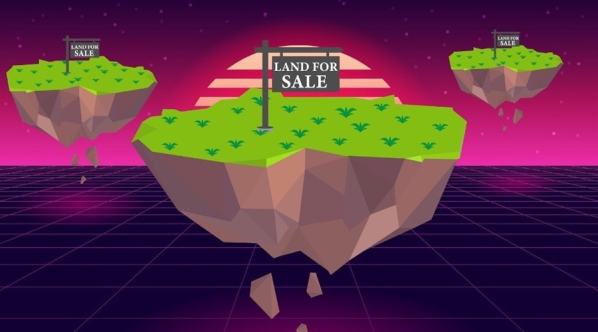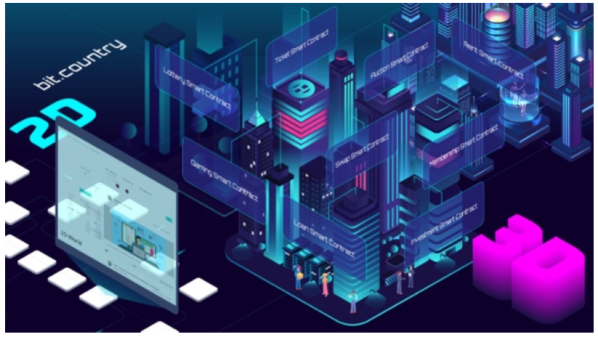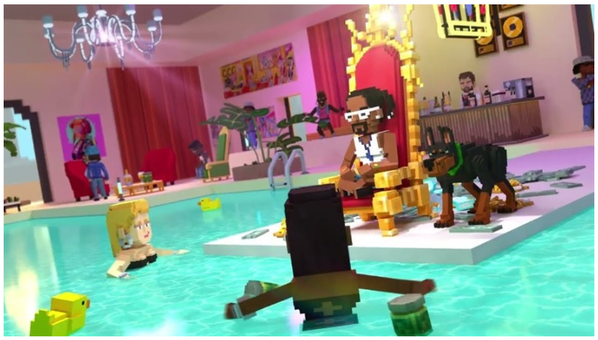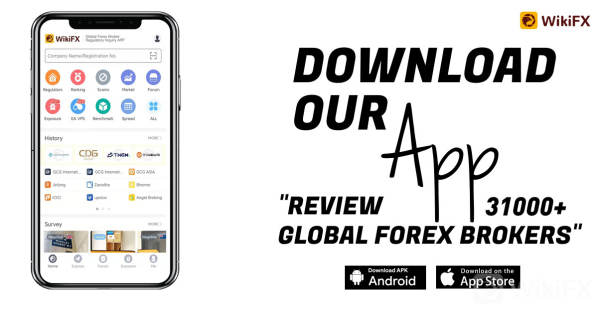
The metaverse is often said to be the next generation of the internet.
The metaverse is often said to be the next generation of the internet, a place where users can physically walk around and explore 3D virtual worlds that are home to all manner of immersive experiences, exhibitions, stores, games and more. Within the metaverse, its possible to meet and interact with other users and famous personalities such as Snoop Dogg at virtual hangouts.
People spend a lot of time on the internet as it is, and metaverse advocates are betting that they‘ll want to spend just as much of their time in these interactive, 3D virtual worlds, where they’ll be able to enjoy experiences that simply arent possible in a 2D website or app.
If that happens, the metaverse will become a place where theres lots of money to be made. Indeed, Epic Games CEO Tim Sweeney recently told Bloomberg in an interview that it could potentially grow to become a multi-trillion dollar economy.
“The next three years are going to be critical for all of the metaverse-aspiring companies like Epic, Roblox, Microsoft, Facebook,” Sweeny told Bloomberg. “Its kind of a race to get to a billion users. Whoever brings on a billion users first would be the presumed leader in setting the standards.”
The metaverse refers to a number of platforms that are home to virtual worlds. They can be thought of as virtual planets, or different land masses, that are home to a finite amount of digital real estate. What that means is that space within the metaverse is limited – once someone buys a plot of land, that space belongs to them and no one else can use it, unless they rent or purchase it from them. Given the limited amount of metaverse land available, it's no wonder that demand for virtual land, and therefore prices, are going up.
Some of the worlds biggest companies have already bought into the metaverse in the hope of reaching out to new customers. PricewaterhouseCoopers has snapped up a plot of land in The Sandbox, where it aims to establish an advisory hub in Web3 that will facilitate a new generation of professional services such as accounting and taxation. Another famous brand, Adidas, has also purchased land in The Sandbox, saying it did so to express its excitement around the possibilities the metaverse holds. Meanwhile, Warner Music Group acquired land in The Sandbox to build what it says will be a virtual concert venue for metaverse users.
Some users have even bought plots of land just to get kudos from their virtual neighbors. For instance, one user reportedly paid $450,000 to buy land located next to Snoop Doggs estate in The Sandbox. Other notable deals include Republic Realm, which spent an eye-watering $4.3 million to buy space in The Sandbox, and Tokens.com, which acquired virtual land in a rival metaverse, Decentraland, for $2.4 million.
Where To Buy Metaverse Land?
The Sandbox and Decentraland are generally seen as being two of the big four metaverses, alongside Cryptovoxels and Somnium Space. These four virtual spaces have all seen numerous land sales involving thousands of dollars‘ worth of cryptocurrency and it’s likely that virtual land within them is already out of reach of many buyers.
So there's a lot to be said about the potential of buying virtual real estate in up and coming metaverses such as Bit.Country, an emerging project where anyone is able to build their own complete metaverse – an immersive 3D world complete with a map, games, stores, governance and economics.
Bit.Country is advantageously built atop of the Metaverse.Network on the Polkadot blockchain, which means it benefits from lower gas fees and faster transaction times than the major metaverses above, which are all built on top of the Ethereum network.
With Bit.Country, its possible to acquire and develop a virtual world relatively cheaply, with the benefit of a cryptocurrency-based economy that rewards all users who visit and interact with it. So brands can build and launch decentralized applications on Bit.Country and use them as a medium to interact with visitors, showcasing different products and services and making sales directly within the metaverse.
Like other metaverses, land in Bit.Country is limited. Its metaverse is based on the Continuum, which is a map of bit countries (virtual worlds) that make up the Bit.Country universe. Each bit country is known as a “Land Block” and there are only 100,000 such blocks in the Continuum. Each land block can be subdivided into 100 land units, which are where buildings and environments are based. These land units can be individually owned, bought and sold, with the land owners able to build assets and sell products and services within them. If someone owns a group of these land units, this is known as a “virtual estate”.


What Can You Build On Metaverse Land?
Bit.Countrys native NUUM cryptocurrency is a critical element of its metaverse, serving as the main currency for transactions. NUUM can be used to buy land and items within stores, and is also a governance token. Land blocks and land units are represented as NFTs.
The possibilities for buying land in the metaverse are endless. For instance, in The Sandbox and Bit.Country, users who own land can create venues such as a cafe for meeting other users, an NFT gallery, a dance club, a concert hall or even a conference room.
One of the best examples is Snoop Doggs mansion in The Sandbox Alpha, where he regularly hosts concerts and makes himself available for interactions with fans via a hangout lounge. NFT galleries are very popular too, giving digital artists a way to showcase and sell their best works.

Snoop Doggs Metaverse Mansion
Each metaverse is slightly different. For instance, Decentraland is more like a simulator, where users create their own avatar and socialize with others in various different simulations of real-life environments. The Sandbox is more into gamification, providing users with extensive tools to create items, build homes and design mini-games that appeal to their user-base and advertise their brand. As for Bit.Country, its main value proposition is it enables anyone to launch their own themed metaverse within its Continuum, where they can host various applications to showcase their products and services. In each of these metaverses, advertising is a big thing already, with billboards dotted across many of the most popular virtual worlds.
Who Should Buy Metaverse Land?
Any brand or famous person that intends on generating mass appeal with younger generations might consider acquiring some metaverse real estate.
However, metaverse real estate is also likely to be a great investment for anyone who understands how the metaverse will work and the kinds of projects that will make sense. As such, possibilities exist for both metaverse developers and landlords.
While many companies and individuals are keen to explore the metaverse, they lack the skills to do so. As a result, brands are only too keen to work with metaverse developers who can help them ideate and then create metaverse projects. Metaverse developers not only guide their customers on what and how to build, but can also provide useful advice on which metaverse to build in, where their project should be located within it, and the most appropriate time to launch.
As for landlords, these include people who pre-build spaces within the metaverse that will appeal to certain types of brand. Theyll typically acquire land, design and build attractive, multi-function buildings in desirable locations, and then look to rent these estates out to brands before eventually selling them off. Other landlords simply buy up empty lots in promising locations with a view to either renting it out or selling it to someone once the value of that real estate has increased.
Virtual land is likely to be a good investment, with a recent report by Citi GPS forecasting that the metaverse will eventually expand to as many as five billion users and an addressable market capitalization of more than $13 million. Assuming that report is on the mark, the value of existing parcels of digital land is likely to explode, even if the plot is never developed.
While it‘s hard to predict what the metaverse will eventually become, it is clear that it is a concept that’s only just taking off. Virtual land has already become prohibitively expensive and beyond the reach of all but the wealthiest buyers on many platforms. As such, the smart money is now looking to invest in the next up and coming metaverses. And that makes platforms like Bit.Country an especially enticing prospect.
Successful investing in metaverse land will be heavily dependent on the platform‘s adoption, so be sure to consider the risks. That said, there’s only so much downside to investing in a relatively affordable platform such as Bit.Country, and a whole lot of upside to getting in early on a metaverse project that promises to revolutionize how brands connect and interact with their fans.

Leave a Reply